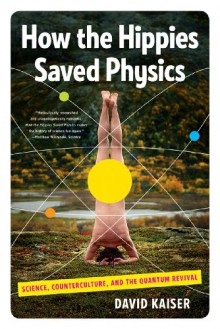How the Hippies Saved Physics: Science, Counterculture, and the Quantum Revival
by:
David Kaiser (author)
“Meticulously researched and unapologetically romantic, How the Hippies Saved Physics makes the history of science fun again.”—ScienceIn the 1970s, an eccentric group of physicists in Berkeley, California, banded together to explore the wilder side of science. Dubbing themselves the “Fundamental...
show more
“Meticulously researched and unapologetically romantic, How the Hippies Saved Physics makes the history of science fun again.”—ScienceIn the 1970s, an eccentric group of physicists in Berkeley, California, banded together to explore the wilder side of science. Dubbing themselves the “Fundamental Fysiks Group,” they pursued an audacious, speculative approach to physics, studying quantum entanglement in terms of Eastern mysticism and psychic mind reading. As David Kaiser reveals, these unlikely heroes spun modern physics in a new direction, forcing mainstream physicists to pay attention to the strange but exciting underpinnings of quantum theory. 46 illustrations
show less
Format: paperback
ISBN:
9780393342314 (039334231X)
Publish date: July 16th 2012
Publisher: W. W. Norton & Company
Pages no: 416
Edition language: English

Meh. EST plus Uri Gellar plus Berkeley do not a narrative make. This was alternately deadly and laughable. I like the premise, I really do, but I don't think Kaiser does justice to it. Maybe the hippies DID save physics, maybe they didn't. This book doesn't convince me, and it put me to sleep multip...

"Finally, I understand entanglement"Tells a great story about entanglement or as Einstein would say "spooky action at a distance". The people involved in proving Bells theorem and its significance are discussed at length. "The Dance of the Photon" tells a better story about the science of entangleme...

How the Hippies Saved Physics is a fantastically kooky and zany history of the fringes of physics research in the 1960s and 1970s. The premise is certainly intriguing. Kaiser argues that the Second World War and the Cold War had relegated physics in America to number crunching and practical applicat...






 13 years ago
13 years ago




 14 years ago
14 years ago




 14 years ago
14 years ago